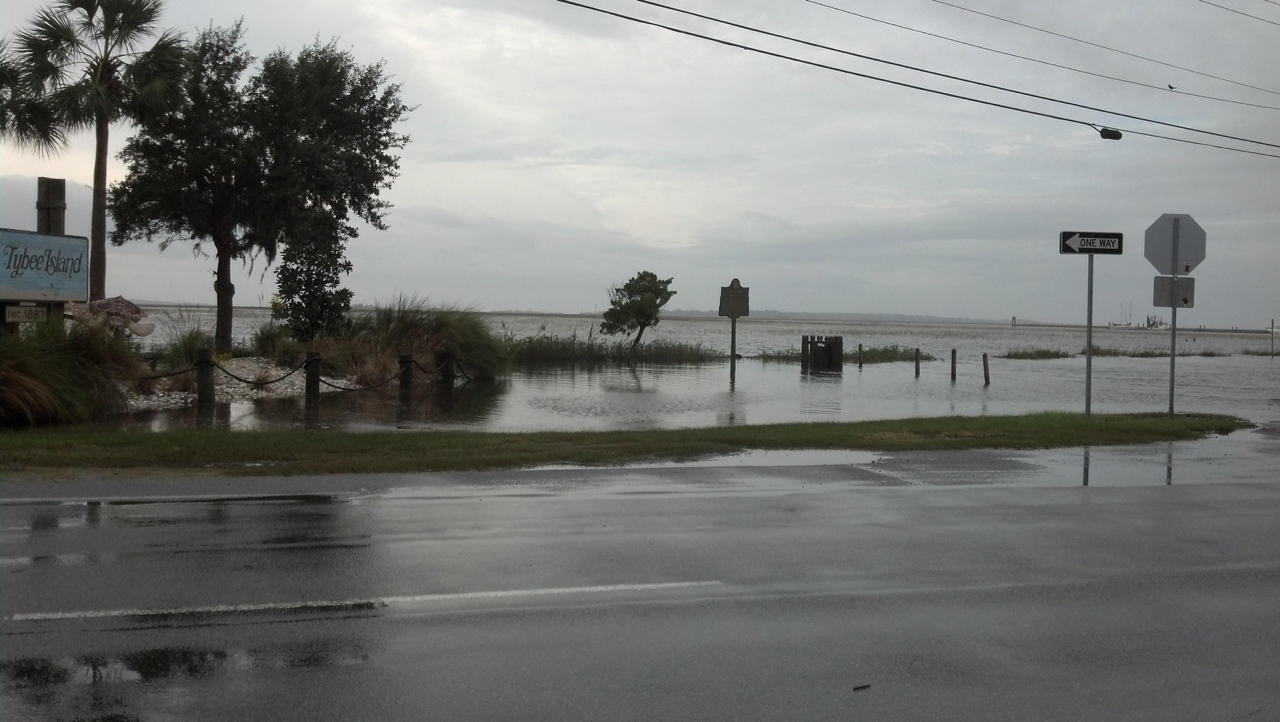Sea Levels Rose Faster In The South; Researchers Find A Reason

Courtesy of Tybee Island Police Department
Around the world, climate change means the oceans are rising. Water expands as it warms, bringing up sea levels. The ice melting in the Arctic contributes, too.
The oceans creep up on average by about a tenth of an inch a year, but, in recent years, sea levels have gone up much faster in the southeastern U.S.
Researchers now have an idea why that rapid rise is happening.
Blame it on two big atmospheric phenomena, says Florida State University geologist Andrea Dutton. In a paper published Wednesday in the journal Geophysical Research Letters, she and her colleagues pin the acceleration on El Niño and another process, the North Atlantic Oscillation.
“When these two combine in the right way, they can basically push up sea level very quickly along different sections of the U.S. Atlantic coastline.” Dutton says.
Between 2011 and 2015 that happened in the Southeast, raising sea levels by about an inch per year.
“That’s five inches,” Dutton says. “That’s a large amount to start to worry about.”
The atmospheric phenomena don’t always line up to cause the rapid rise, and sometimes they drive the acceleration in the Northeast, instead of in the South. Dutton says it’s starting to taper off in the Southeast now.
Even though the acceleration comes and goes, sea levels overall are still trending up because of climate change.
“So it’s like little pulses of sea level rise on top of the longer-term sea level rise that’s occurring in the background,” Dutton says.
Learning what causes the pulses is helpful, says coastal geologist Clark Alexander, the director of the University of Georgia’s Skidaway Institute of Oceanography.
“It gives you a framework to start making predictions,” he says, because scientists can predict El Niño.
Alexander was not involved in this study, but he calls it thought-provoking. He says he’d like to see the work extended further, so that it could be used for planning. With a heads up, coastal residents could prepare for the next time sea level rise starts to accelerate.
Dutton says she’d like to see the research applied in that way, too.
“This kind of short-term forecasting is going to be more and more important,” she says.
9(MDAxODM0MDY4MDEyMTY4NDA3MzI3YjkzMw004))







